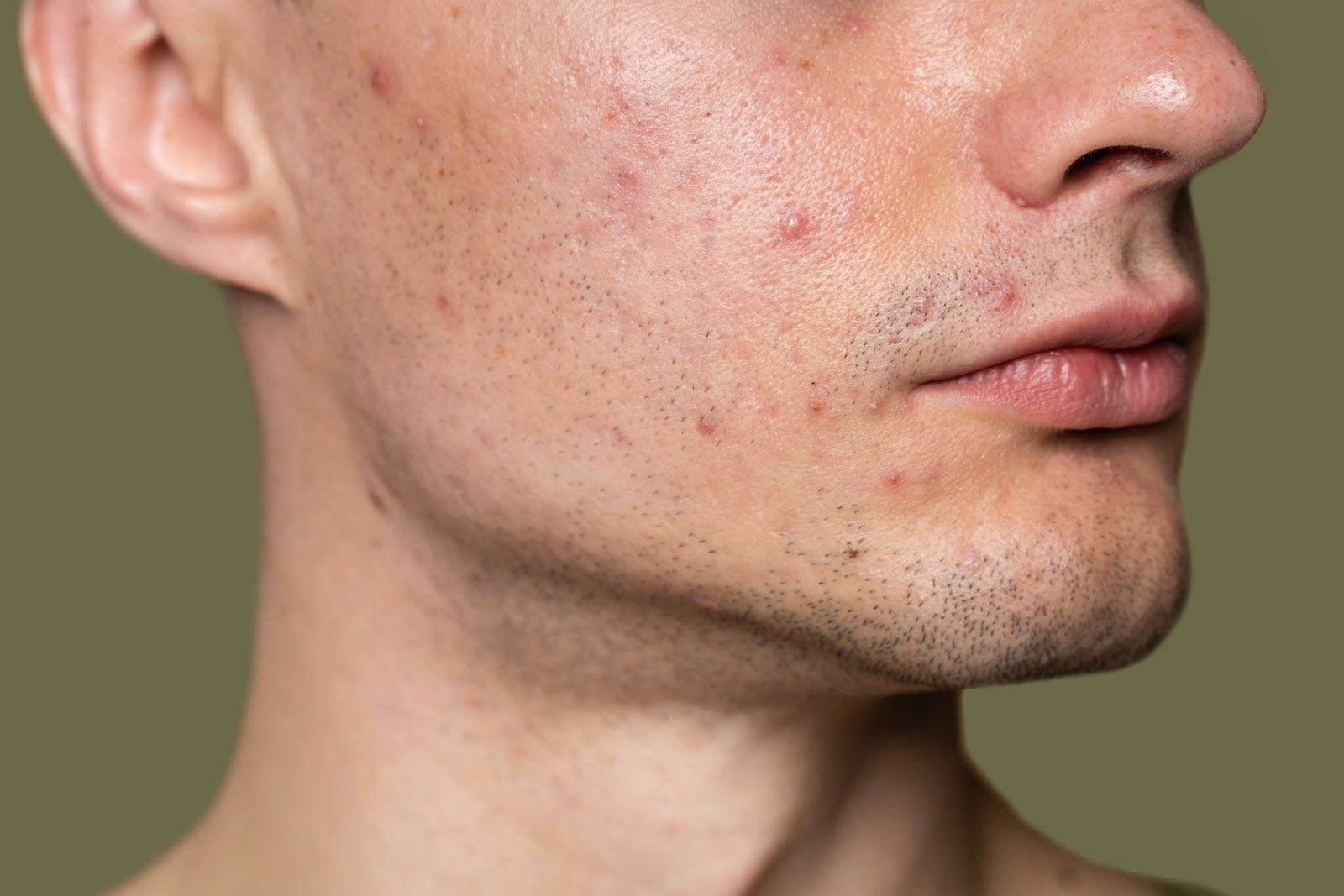
Ever wondered how Hormones and Diet Impact Acne?
Hello !
This newsletter, we will be decoding a very recent research study that was conducted in March 2023 at Pomeranian Medical University in Szczecin, Poland.
Study title - Metabolic and Dietary Factors in Acne Vulgaris and Evaluation of the Acne Vulgaris Treatment with Oral Contraceptive-Based Therapies in Young Adult Women
Date - March 2023
DOI: 10.3390/nu15061488
Acne, a familiar skin woe, often makes its presence felt during the tumultuous years of youth. Beyond just a cosmetic concern, it significantly influences both physical and mental well-being. Recent research delves into the intricate web of factors contributing to acne, shedding light on the nexus between endocrine (hormonal), nutritional, and dietary elements.
Metabolic Dance of Hormones
A study published in Nutrients (2023) set out to explore the metabolic aspects of acne, focusing on 168 women aged 18-31. Divided into two groups - one with acne and another without - the study unearthed intriguing links between insulin resistance and acne.
In the acne-afflicted group, insulin levels and the HOMA-IR index (reflecting insulin resistance) were notably higher. Insulin resistance, often associated with increased androgen production, triggers excess sebum secretion and skin inflammation, contributing to acne development. Additionally, the study found lower levels of "good" cholesterol, hinting at dyslipidemia playing a role in acne by affecting skin barrier function.
Navigating the Dietary Maze
Turning the spotlight onto diet, the research probed the impact of high glycemic index (GI) foods, particularly sweets, on acne severity. The study established a significant correlation between sweet consumption and acne severity, measured using the Leeds scale. High-GI diets can elevate insulin and IGF-1 levels, fueling androgen production, sebum secretion, and skin inflammation.
Surprisingly, while dairy products are often implicated in acne, this study didn't find a significant correlation. It's worth noting that individual variations or the specific types of dairy consumed might contribute to this nuanced picture.
Contraceptive-based Therapies: Allies in Acne Battle
The study also evaluated the effectiveness of oral contraceptive-based therapies in mitigating acne severity in young women.
The study group was further divided into subgroups according to the treatment used:
- Oral contraceptive (OC),
- Oral contraceptive and cyproterone acetate (OC+A),
3) Oral contraceptive and isotretinoin (OC+R).
Regardless of the specific treatment (OC, OC+A, OC+R), all three significantly reduced acne severity after a six-month follow-up.
This underscores the efficacy of oral contraceptives in managing acne, with no substantial difference noted between the treatments.
Strikingly, the study suggested that these contraceptive-based therapies might mitigate the impact of diet on acne, implying a potential avenue for managing acne beyond dietary modifications.
In a Nutshell: Key Takeaways
Hormonal Havoc: Insulin resistance and higher insulin levels might be pivotal players in the acne game among young women.
Dietary Dynamics: Sweets, with their high glycemic index, seem to exacerbate acne severity, while the link with dairy products appears more complex.
Contraceptive Chronicles: Oral contraceptives, with or without additional agents, emerge as effective tools in taming acne, potentially transcending the influence of diet.
Conclusion: Toward Clearer Skin
In essence, this study beckons us to recognize the intricate interplay of hormones, diet, and acne. Oral contraceptives, by offering a viable solution, provide hope for those grappling with acne-related challenges. As we navigate this terrain, the call for further studies resonates, urging us to deepen our understanding of these connections and pave the way for more effective acne management strategies.
For now, the message is clear – A comprehensive approach that integrates hormonal and dietary considerations, along with a personalized treatment protocol, rather than a one-size-fits-all method, could be pivotal in achieving improved therapeutic outcomes
Well, here is something to ponder over-
Multiple drugs can be avoided for management of acne by personalized treatment protocol to reduce the cost as well as increase the compliance for the patients.
What was your experience in management of acne ?
Share